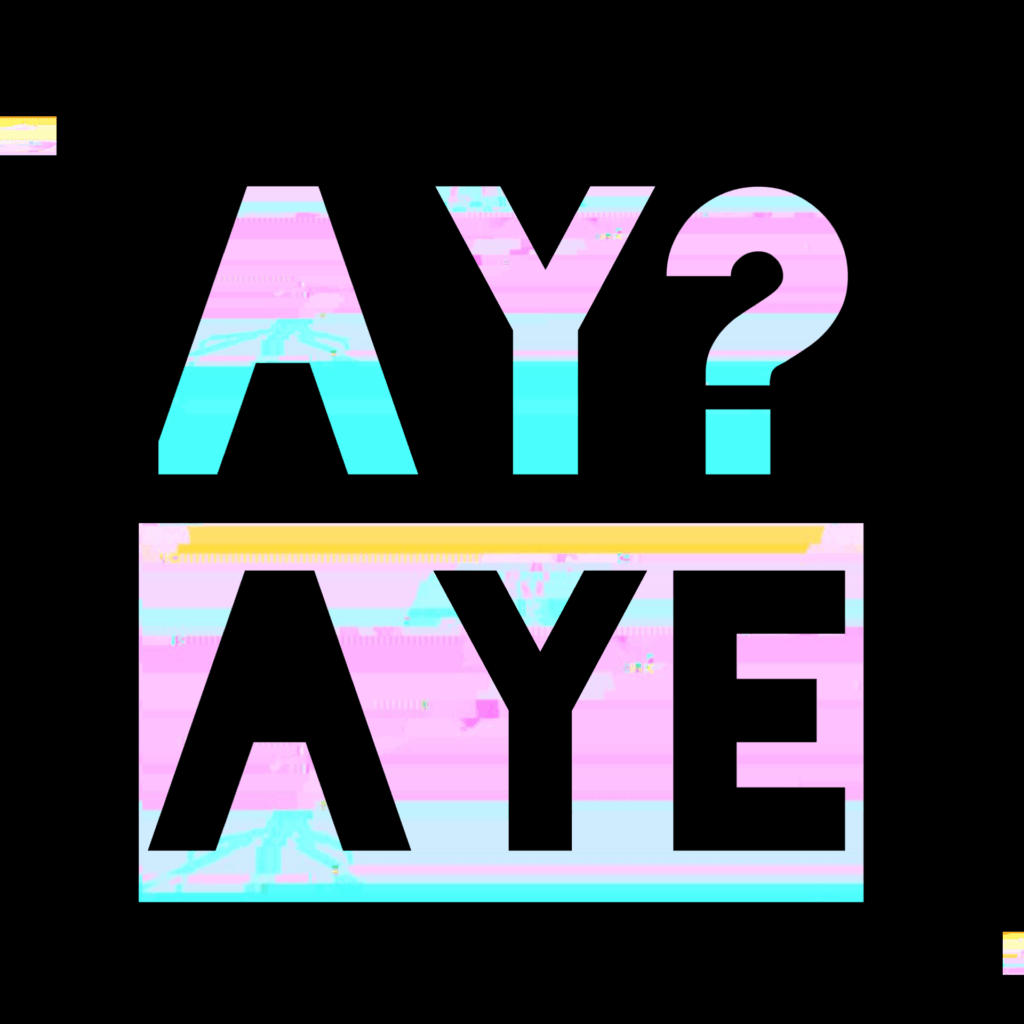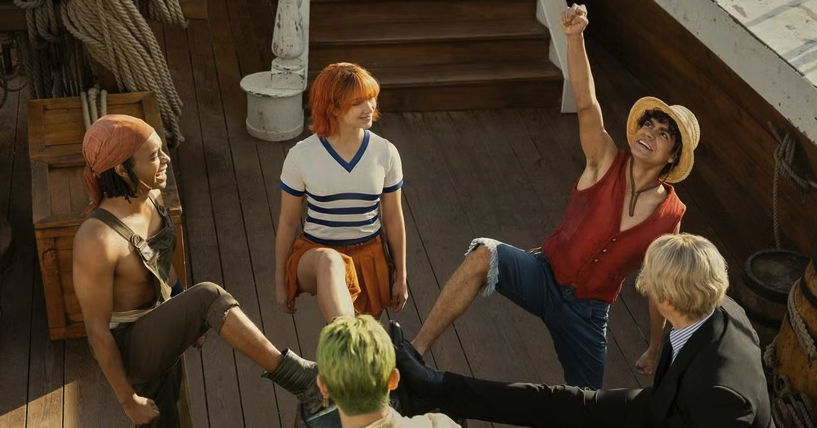
This is not another AI doom-watch. Artificial Intelligence is a thrilling epoch in industrial and human evolution. But looking at how we are exploring AI to enhance our lives, when it comes to our pathways to understanding, experience and growth, it makes me think: what do Anthony Bourdain, a book on deviance, my favourite noodle shop and innovation have in common? Let’s find out.
As I work in realms of human-centred design, experience and change, of all the debates on the impact of AI a significant one revolves around our fundamental human curiosity. It is the characteristic that propels us forward, the heartbeat of growth and innovation and the bringer of joy. In this regard, we are facing some degree of risk and need to ensure AI is additive rather than subtractive to the human condition. This is also a story about the importance of getting lost to be found.
What does A-I-O-U?
Let’s be clear, AI is a good thing, nay, it’s a great thing. And the impact it has will only continue to grow. Viewed as a tooling upgrade like, for example, the digital camera was to photography, television was to radio, the advent of the internet, the Gutenberg press, there is disruption and some anxiety when technological step changes emerge. Plugging-in across global economics, work, health and individual human experience, AI reaches way beyond a communication medium or shiny new creative device. Beyond a physical tech innovation of any scale and into cognitive realms – doing our thinking for us.
In these examples, technological advances that changed how we create or communicate, there were the same uncomfortable adjustments and debate. Impact on craft, employment, the quality of output and diminished expectations, the disruption to creative professions is significant – a world I also orbit and something to focus on another time. Other risks abound. Governance, credibility, trust, authenticity. The quality of information we share and consume matters. Similarly, we could talk about the Silicon Valley hype machine; after the dust settles will the bubble burst? Generative or agentic AI aside, are we really just talking about search engines and data-crunching apps on steroids? Whichever angle we interrogate from, for sure we are facing developments with profound universal implications.
Let’s remember, we brought it into being. Hopeful, optimistic, ambitious, that it will help our little ‘people and planet’ family thrive. Let’s nurture it, guide in the right directions and keep sight of its purpose – not have it bite the hand that feeds, so to speak.

Parking the dystopian hysteria of robots taking over the world, the challenges I’m interested in here are more about our health, wellbeing, intellectual growth and happiness. As a productivity enhancer, efficiency gainer, why would we not embrace it? The applications are phenomenal. I’ve worked with companies rapidly evolving in MedTech, enhancing diagnostics and care pathways. Others making light work of public data analysis to realise better public policy and outcomes for citizens. Further still, global economic markets accurately mapping long-term natural resource supply and demand.
But, along with the justifiable excitement, what happens when we prioritise destination and outputs, over inputs and voyages of discovery? We can make things easier, faster, but are there some things that actually serve us better to be along for on the ride? What happens when we extract ourselves from the learning process? If we shortcut curiosity, do we risk losing meaning?
Unknown intentionality
Working in user experience, service design, customer journey’s, or business innovation and change of any kind, we understand the purpose of design methodologies to uncover solutions that are not obvious at face value. The process of going wide, engaging 360o, in-depth with information and stakeholders allowing new connections to be made, solutions to problems we maybe didn’t know we had, innovation borne out of immersive engagement with a subject or context.
A million years ago, while scanning my university library shelves for a recommended set text to help cobble together a criminology paper, I couldn’t find it. Instead as my gaze tracked the dusty spines something else jumped out, Kai Erikson’s Wayward Puritans. A sociology title on deviance and social order (for context, in case you were interested, it references the Massachusetts Puritan settler communities of the 1700’s and discusses a theory about the inevitability and necessity of crime and deviance in society; that even in heaven we would need a metric for ‘good’ vs ‘bad’ behaviour). Anyway, I’d never heard of it, but something told me it was important. I signed it out, read through at pace, it completely changed the focus of my essay and scored a very respectable 85%. I had also ‘accidentally’ discovered something that continues to inform my understanding of human behaviour, morality and empathy. It wasn’t fed to me. I found it, because I was curious. It wasn’t what I thought I was looking for, it was even better, because I was intentionally embracing the unknown.
Side note. Physically engaging with information sources is not just a tactile reward, or legit sense of achievement on an IRL quest over a virtual or remote one, it is also a contributor to deeper absorption of knowledge.
Open to the possibility of hidden treasure

Getting out there, off the beaten track, seeing something for yourself and not just where others have pointed you towards. Going wide rather than narrow, getting lost, will lead somewhere unexpected and likely even more rewarding. That’s how I found my favourite noodle joint in Beijing, Punk Rock Noodle. This place wasn’t far from where I lived. I had lots of favourites in truth, but that day I took a wander down an alley I hadn’t been down and there it was. An unassuming shopfront, from a distance the feint soundtrack of ska and punk rolling out the door, run by local rockers, hosting rowdy patrons and as I would soon discover, the best dàn dàn miàn ( 担担面) – I’d often get two bowls.
This is where our friend Anthony Bourdain comes in. His openness to the world, making often unexpected connections with people, places, culture and food, he leaned right into the spirit of curiosity and a rich life lived – and our experience of culinary journalism richer for it too. This is more than a virtue, it’s a fundamental human need shared across realms. Remaining open to and hungry for the unknown or unfamiliar. Going overland, seat of your pants, making wrong turns, learning through trial and error, tests of change, whatever you want to call it. I don’t just want to taste the divine noodle broth, I want to know who made it, where the recipe came from, why the chef is missing her front teeth, share a laugh. I don’t want to be chauffeured over to sit starchily in a celebrated eatery with the detached veneer of anonymous hospitality. I need a real place, where people really care about what they do and connect with the people they share time and space with. And I need to make my own way, taking in the contextual details, sights, sounds, the street theatre. Ska and spicy noodles work really well together, btw.
It’s the thought that counts
Back to AI. What I’m obviously getting at here is the overlap of process automation and where it impacts human understanding, motivation, satisfaction. When it comes to actionable knowledge acquisition, innovation, the process and methodology of coming into something without preconception, ready to explore the unknown and uncover opportunity is so vital. Doing the thinking, observing, separating the signal from noise, moves us toward solutions but also means more for the personal cognitive investment.
What strikes the biggest chord for me is the impact on current and future generations to enjoy the journey, rather than just the destination. Commercial profit motive, as always, propels the narrative to have us care more about results, deadlines, output, dividends. The impact on attitudes toward effort, application, growth and learning, wanderlust and spirit of adventure, I worry about that loss. The absence of curiosity, in psychology realms we know, leads to decline in attention.
LLMs and automated analysis tools remove our close engagement with knowledge. We jump to the end. College professors grading papers are obviously grumpy about it. We can definitely take advantage to support our efforts but hopefully in the right ways. For example, things like MIT’s HumAIne Project and its EPOCH Framework (Empathy, Presence, Opinion, Creativity, and Hope) is intended to help guide where and with what AI and human actions should meet. I have tested the effectiveness of, for example Waldo on secondary insight gathering, similarly Claude or things like Otter on productivity functions. Impressive for sure. Some tasks though, definitely need for us to be putting in the hard cognitive yards still.

On an adjacent, more philosophical level, what is the point of anything if it takes no effort to accomplish? We need purpose – the fanciful notion of us all hitting the beach with piña coladas while automatons keep things ticking over won’t fly. Humans need the struggle. We are wired to strive, to gather, to actively participate in thriving. It’s evolution. But where it plugs-in and what we do get to do while our binary, silicon lackeys run things, I’m cool with it as long as the outsourcing eliminates the mundane and repetitive. Dealing with efficiency to support and enhance, not taking away the bits where we actually get to think or create – ‘I don’t want more time to do laundry and dishes, while AI does my art and writing…’ etc. We need to stay grounded. Ensure we maximise AI as a societal benefit, not a deficit.
There are realms where we need to stay engaged, to keep sharp so we can realise sharper outcomes. Improving service experiences or engagement, developing more meaningful propositions, products or solutions, we need to be there to pick up on the little things, the context, the nuance, to read between the lines.
We need to remain curious.